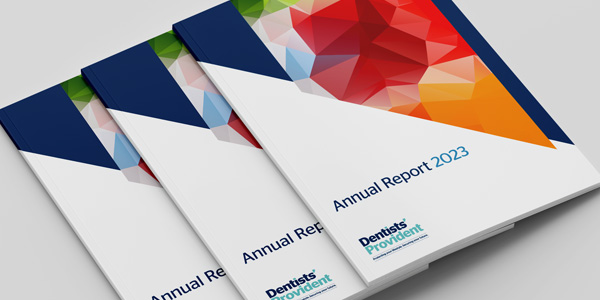
A phrase we are all familiar with, that is routinely used to refer to a problem or annoyance and its obvious why. A pain in the head can stop us in our tracks, causing a noticeable impact on both the sufferer and those around them. Often a headache is taken lightly; disappears quickly and is nothing more than a symptom of overtiredness or dehydration, but in more extreme cases it can be totally debilitating and even a sign of something sinister. In this article we investigate the impact of headaches, their potential treatment and possible prevention.
My head hurts…
Headaches come in all shapes and sizes and have a multitude of causes. There are three major categories of headache based on the source of the pain; primary headaches (including migraine, tension and cluster headaches), secondary headaches (those caused by an underlying structural issue or an infection in the head or neck) and those related to the nerves. Within these groups are 17 different types of headache ranging from a slight head pain to a full-on migraine with aura. However headaches of one form or another can affect any one of us; according to the World Health Organization 1 in 20 people in the developed world suffer from a tension headache every day.
When it gets worse…
A migraine is usually felt as a moderate to strong throbbing pain at the side of the head. Often suffers also complain of nausea and increased sensitivity to light or sound so it isn’t a pleasant experience at all. Migraines occur in around 15% of adults, are three times more common in women than men and are ranked as the seventh most disabling disease globally. Around six million people in the UK suffer migraines accounting for more than 30 million sick days a year, with the average person taking 33 days off work per year.
Last year Dentists’ Provident paid over £9,000 for the time dentists had to take off sick due to headaches and migraines, so this isn’t just a real issue for the individual, but could potentially impact your team and patients.
Some people have migraines frequently, even up to several times a week while others suffer them far more infrequently, in rare cases only every few years. However, the main problem is that the exact cause of migraines remains unknown. They're thought to be the result of temporary changes in the chemicals, nerves and blood vessels in the brain and around half of all sufferers also have a close relative with the condition, suggesting that genetics may play a role as well. Some people however find their migraines are associated with certain triggers including stress, the menstrual cycle, tiredness and certain food or drink.
When to worry…
Unless you know the cause of your headache, such as tension or your propensity for migraines, and after taking your usual over-the-counter treatment, the advice is to see a GP straightaway, especially if you have other clear symptoms such as confusion, double vision or a sore scalp. It is crucial that you, and they, take it seriously and carry out appropriate checks to differentiate the symptoms suffered from a usual tension headache or migraine with those more sinister such as meningitis or a stroke that can be hard to identify and can sometimes be overlooked.
There are a number of examples of cases where practitioners have misdiagnosed patients with migraines or tension-type headaches as there were minimal or no neurological deficits on physical examination. These included a labourer in his 40s who unexpectedly had cryptococcal meningitis, after presenting with severe headaches, a 20-year-old female complaining of the worst headache she ever had that was ultimately due to a subarachnoid haemorrhage, and an investment manager who developed headaches with transient diplopia and projectile vomiting that, following further investigations, revealed an ependymoma.
The recommended treatment…
Many headaches tend to go away on their own or through a little help such as relaxing and rehydrating yourself, however they can still be painful and have an impact on your day-to-day life and work. Simple over the counter pain relief such as paracetamol, or aspirin or other NSAIDs are there to relieve or shield us from the pain. However is there anything yet that gets to their cause and can prevent them from occurring in the first place?
The NHS state that there is no cure for migraine, but a number of treatments are available to help reduce their symptoms. Aside from over-the-counter medications, there are triptans (medications that can help reverse the changes in the brain that may cause migraines) and anti-emetics (medications often used to reduce nausea and vomiting).
The latest answers…
Scientists and researchers are forever trying to get to the bottom of the cause of migraines and either find a cure or reduce the frequency or their occurrence. In November last year a technique called cerebral sodium MRI discovered that migraine sufferers had significantly higher levels of sodium in their cerebrospinal fluid. As sodium plays an important role in providing chemical stability in the brain, this may prove to be a useful diagnostic tool moving forward, as many sufferers are undiagnosed and being treated in the dark, so to speak.
In June this year studies were reported showing that migraine sufferers have more microbes that modify nitrates in their mouths than non-sufferers. Foods, such a processed meat and green leafy vegetable, are reduced to nitrates by bacteria in our mouths and previous links have been made that foods containing higher levels of nitrates - like red wine and chocolate - and this could be the reason why.
It was reported in June this year that injections of Botulinum toxin type A has been licensed in both the UK and USA for the prevention of chronic migraine (those suffering from at least 15 migraines a month), due to the positive results of just two large randomised, placebo-controlled trials.
In addition, in May this year the U.S. Food and Drug Administration (FDA) approved the first drug aimed at preventing migraines. It works by blocking the pain signal by targeting the receptor of a calcitonin gene-related peptide (CGRP) and occupying the nerve that the CGRP would normally bind to, amplifying the level of pain caused by a migraine attack. With monthly self-injections, 30% of those given the new drug saw the amount of their migraines halved, experiencing one or two fewer on average a month. This could prove to be great news for sufferers and should be approved for use this year or next over here.
When it presents in your surgery…
Your patients may well complain of headaches when they see you, so it’s worth considering whether their cause maybe dentally-related, such as bruxism, before referring them to their GP. Obviously the cause of headaches can be difficult to diagnose as the pain could be radiating from any number of potential sources, but it is important to first rule out anything relevant to their dental health. In the US, neuromuscular dentistry, a specialist area of headache treatment that looks at the movement of the jaw and its relationship to the patient’s dental health, has become established practice but is only now gaining ground in the UK, however it’s at least worth being aware of it.
Most headaches related to dentistry are caused by muscular tension, usually as a symptom of malocclusion, but other issues such as Temporomandibular Joint Disorder, for example, occur in patients who are unaware of its cause, 99% of the time resulting in an injury to the jaw that the patient may not even remember.
While it appears headaches are here to stay, by keeping up with the latest research you could ease their potential impact, for both you and your patients.
References available on request.
This article is intended for general information only, it is not designed to provide financial, health or other advice, nor is it intended to make any recommendations regarding the suitability of any plans for any particular individual. Nothing in this article constitutes an invitation, inducement or offer to subscribe for membership or additional benefits of Dentists’ Provident.
No responsibility or liability is assumed by Dentists’ Provident or any copyright owner for any injury or damage to persons or property as a consequence of the reading, use or interpretation of its published content. Whilst every effort is made to ensure accuracy, Dentists’ Provident, the authors, Editors and copyright owners cannot be held responsible for published errors.
Dentists’ Provident exercises editorial control only over material published and/or produced by it. No responsibility or liability is assumed by Dentists’ Provident for any articles produced or reproduced in third party publications and/or websites.
The views or opinions expressed do not necessarily reflect views of Dentists’ Provident or copyright owners. Inclusion of any advertising material does not constitute a guarantee or endorsement of any products or services or the claims made by any manufacturer.
If you have any questions, please contact our member services consultants by emailing press@dentistsprovident.co.uk or calling 020 7400 5710.
If you have any questions, please contact our member services consultants by emailing
memberservices@dentistsprovident.co.uk or calling 020 7400 5710.

Our 2024 Annual General Meeting will be held at 91-94 Saffron Hill, London, EC1N 8QP on Friday 24th Ma…
Read more
The 2023 annual report from Dentists’ Provident, a leading income protection provider for dental profe…
Read more
Our next exhibition is the British Dental Conference & Dentistry Show in May, where we look forward to meeting anyone interested in becoming a member or members wanting to discuss their plans.